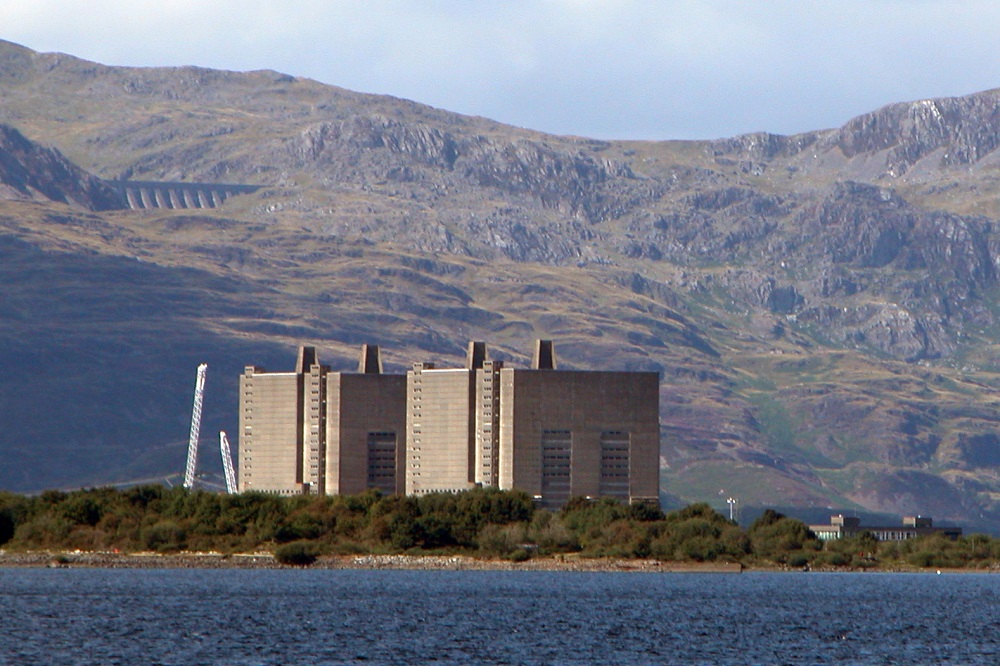‘Highly unlikely’ Trawsfynydd site will be considered for new nuclear development in near future

Dale Spridgeon, Local Democracy Reporter
It is “highly unlikely” that the Trawsfynydd site will be considered for new nuclear development in the near future, councillors have been told.
Cyngor Gwynedd’s full council heard from a councillor that despite “uncertainty” over the site, work was underway with partners to establish a science park and future jobs.
The issue arose during Cyngor Gwynedd’s full council meeting on Thursday, July 3.
Militarisation
Councillor Beca Roberts had asked: “In the light of the recent rise in international tensions and the United Kingdom Government’s attitude towards increased militarisation, and given the fact that nuclear sites are considered prime targets in any military conflict – including sites such as Trawsfynydd –
“What assurance do the people of Gwynedd had, that the Council is taking action to ensure there will be no further nuclear-related development at the Trawsfynydd site, and that the site be decommissioned immediately to protect the area for the future?”
Answering, Cabinet Member for Economy and Community Cllr Medwyn Hughes, said decommissioning work continued at Trawsfynydd.
All high-level radioactive waste was transported from the site for treatment and reprocessing at Sellafield in Cumbria, over twenty years ago, and the site had since focused on processing intermediate radioactive waste.
“They are almost at the end of the journey by processing the waste residues from the cells within the ponds buildings and transporting them to the dedicated on-site storage,” he said.
The waste would be “safely stored” on site until the UK’s radioactive waste repository, being built in the coming decades.
“Low-level radiation remains in the fabric of the reactor structure, and there is a work programme in place to treat and dispose of this waste in order to achieve the goal of leaving the site safe for the public and the environment,” he added.
Decommissioning
The decommissioning work was programmed until 2060, according to NRS, (Nuclear Restoration Services) plans.
Cyngor Gwynedd he said was part of a Site Stakeholder Group (SSG) where NRS, which manages the site for the Nuclear Decommissioning Authority, reports on the decommissioning work.
“Site safety is the priority in every discussion” he said.
His answer included a statement from NRS:
“The health and safety of our workforce, the public and environment are fundamental to our business at NRS (Nuclear Restoration Services).
“All operations at the Trawsfynydd site are carried out to the highest safety standards, overseen by the UK’s independent nuclear safety Page 3 regulator, the Office for Nuclear Regulation (ONR).
“All radioactive discharges into the environment are managed to reduce radiation using best available techniques and are supervised by Wales’ independent environmental regulator, Natural Resources Wales.
“All operations and facilities at the Trawsfynydd site have an associated nuclear safety case to ensure that control measures are adopted to minimise the risk to our workforce, the public and the environment from any reasonably foreseeable radiation-related incidents, including acts of terrorism or attacks by hostile parties.
“The decades-long safety record of the Trawsfynydd site is recognised domestically and internationally across the nuclear industry and a direct result of the hard work and continued dedication of our highly skilled workforce and supply chain.
“Councillor Hughes said he was “very happy to facilitate a site visit” for councillors.Some 190 people are employed directly by NRS at Trawsfynydd and 100 employed through contracts.
Skills and techniques
Around 120 additional workers are expected to be on site over the next three years while the height of the reactor building is lowered.Ninety three percent of NRS Trawsfynydd workers live in either Gwynedd, Anglesey, or Conwy County.
“The specialist skills and techniques that have been developed at the Trawsfynydd site have received Lead and Learn Site recognition for Nuclear Decommissioning work across Britain,” the councillor said.
Although the workforce specialises in nuclear decommissioning, many skills he said were “transferable” to jobs within engineering, technology, science, construction and management.He added due to “uncertainty” about the future of the site and the jobs, he was pleased that Cyngor Gwynedd was working with partners to establish a science park on site, to “ensure the quality work continues in the Meirionnydd area for generations”.
The intention was to develop an Innovation Centre outside the boundary of the licensed site, to include opportunities for working and learning, and “triggering new ideas and job opportunities for the future” he said.
“While the business case will focus on maximising the opportunities arising from the decommissioning work in the short term, interest from different sectors, keen to make use of the site’s special skills and infrastructure, has already been declared, such as an AI Centre, Data Centre and an Occupational Skills Centre, to support significant investments in the region.
He added it was not the council’s role to make the decision if new nuclear activity takes place at the Trawsfynydd site in the future.
“There is considerable uncertainty about the direction of Government’s policy, funding and priorities, which means that it is highly unlikely that the Trawsfynydd site will be considered by the Government and the private sector for new nuclear development in the near future”.
Support our Nation today
For the price of a cup of coffee a month you can help us create an independent, not-for-profit, national news service for the people of Wales, by the people of Wales.






No Nuclear Energy in Wales.
Some good news.
Can someone get around to fixing the bridge!